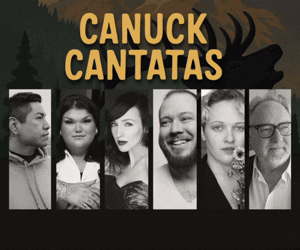In the fall of 1984, the World Music Days of the International Society for Contemporary Music, one of the most important festivals of new music, took place in Canada. Composers from many countries gathered in Toronto and Montreal. Most of them had no idea that the Canadian musical scene was so diverse and accomplished. In the ensuing years, this attitude has changed greatly, and foreign composers are often visitors to our shores. However, this winter and early spring will see an unusual number of internationally famous composers coming to Toronto. In this article, I’ll mention just six of our high-profile visitors:Krzysztof Penderecki, Osvaldo Golijov, Gerald Barry, Steve Reich, Zygmunt Krauze and Jonathan Harvey.
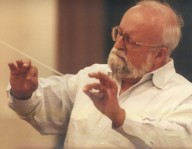 I suspect that the most recognizable name among these is Poland’s Krzysztof Penderecki, one of the most celebrated living composers. Now 76, Penderecki burst onto the international stage in 1959 after winning the first, second and third prizes in the Competition of Young Polish Composers. In 1966, his St. Luke Passion took the world by storm. In the ensuing years, Penderecki has remained in the musical forefront while producing a vast catalogue of concert works, operas – and, perhaps most important to him personally, since he has said that he defines himself as a Catholic composer, sacred music. His last high-profile visit to Toronto was in 2002 when a capacity house in Massey Hall heard him conduct his monumental Credo, a sacred work for massed choirs and large orchestra with a duration of about 50 minutes.
I suspect that the most recognizable name among these is Poland’s Krzysztof Penderecki, one of the most celebrated living composers. Now 76, Penderecki burst onto the international stage in 1959 after winning the first, second and third prizes in the Competition of Young Polish Composers. In 1966, his St. Luke Passion took the world by storm. In the ensuing years, Penderecki has remained in the musical forefront while producing a vast catalogue of concert works, operas – and, perhaps most important to him personally, since he has said that he defines himself as a Catholic composer, sacred music. His last high-profile visit to Toronto was in 2002 when a capacity house in Massey Hall heard him conduct his monumental Credo, a sacred work for massed choirs and large orchestra with a duration of about 50 minutes.
Penderecki’s early works used the dissonant sound vocabulary of modernism. More recent works have tended to a more consonant and romantic palette, leading some critics to accuse him of “selling out.” When I first interviewed him some years ago, he expressed wonder at this attitude, since he has always viewed himself as a descendant of the great German and Austrian symphonists.
Penderecki will be the central attraction in the University of Toronto New Music Festival. As the Roger D. Moore Distinguished Visitor in Composition at the University of Toronto Faculty of Music, he'll be in residence for seven days, giving Torontonians ample opportunity to hear his music and to meet him in person. There will be three free events: a panel discussion at the Gardiner Museum on Jan. 25th, and a Composers Forum at the University of Toronto on January 26, both at 7:30, as well as a free noontime conversation with Penderecki on the 28th.
On the evenings of January 27th and 28th at 7:30, the U. of T. will present concerts of his chamber music in Walter Hall. At 8:00 on the 29th at Koerner Hall, Alex Pauk will conduct the Esprit Orchestra in two works by Penderecki: his Concerto Grosso and one of his most famous compositions, Threnody to the Victims of Hiroshima. There will also be works R. Murray Schafer and John Adams and a pre-concert talk. At 8:00 on the 30th and 3:00 on the 31st at Metropolitan United Church, Soundstreams Canada will present the Polish Chamber Choir of Gdansk, the Elmer Iseler Singers, and the Toronto Children’s Chorus singing seven choral works of Penderecki – in addition to Totus Tuus by Penderecki’s compatriot Henryk Gorecki, and the premiere of Arise, Cry Out in the Night by Norbert Palej, a Polish-born professor at the U. of T. and co-ordinator of the University of Toronto New Music Festival.
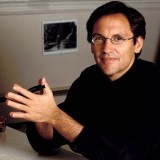 Penderecki’s musical world is definitely Eurocentric and, as he correctly observes, firmly rooted in the Western art-music tradition – but Osvaldo Golijov’s musical lexicon includes genres from Argentina, Brazil, Jerusalem and Eastern Europe, in addition to the entire history of Western music. I've long suspected that eclecticism may be remembered as the pre-eminent musical aesthetic of our time, and Osvaldo Golijov is one of its leading practitioners. His La Pasión según San Marcos (St. Mark Passion), one of his most renowned and popular works, combines popular Latin styles, ranging from Afro-Caribbean chanting and Cuban drumming to Brazilian ballads, and concludes with a setting of the Kaddish, the Jewish prayer for the dead.
Penderecki’s musical world is definitely Eurocentric and, as he correctly observes, firmly rooted in the Western art-music tradition – but Osvaldo Golijov’s musical lexicon includes genres from Argentina, Brazil, Jerusalem and Eastern Europe, in addition to the entire history of Western music. I've long suspected that eclecticism may be remembered as the pre-eminent musical aesthetic of our time, and Osvaldo Golijov is one of its leading practitioners. His La Pasión según San Marcos (St. Mark Passion), one of his most renowned and popular works, combines popular Latin styles, ranging from Afro-Caribbean chanting and Cuban drumming to Brazilian ballads, and concludes with a setting of the Kaddish, the Jewish prayer for the dead.
It’s been said that Golijov shifts genres as often as other composers change keys. In the hands of a lesser artist, this cultural stew might be merely confusing, but Golijov imbues it with his own distinct and fascinating personality. Now 49, he was born and raised in La Plata, Argentina. He absorbed the Argentine culture, a mix of Latin and European elements. As the descendant of Jews from Romania and Ukraine, he is also firmly rooted in the Eastern European Jewish tradition. Since 1986, he has lived in the United States.
Golijov will appear in Toronto as the result of a collaboration among the University of Toronto Faculty of Music, the Toronto Symphony Orchestra and Soundstreams Canada. On February 22nd at 7:00, there will be a meet-and-greet session with the composer, followed by a talk at 7:30. Soundstreams Canada will present Golijov’s first Toronto concert at 8:00 on February 24 at the Jane Mallet Theatre. It features his frequent collaborator Dawn Upshaw singing his There is Wind and There are Ashes on a text of Elie Wiesel, and his Tekiyah, Lua Descolorida, and Last Round. Also featured are works by Spanish-Canadian composer José Evangelista, who will also be in attendance.
The Toronto Symphony Orchestra will present three concerts at Roy Thomson Hall featuring Golijov’s works: on February 25 at 8:00, February 27th at 7:30, and on March 3rd at 8:00. On the 25th, Dawn Upshaw will sing the Canadian premiere of his Three Songs. Alisa Weilerstein will be the soloist in Azul for cello and orchestra. The programme will also include Through the unknown, unremembered gate by Canadian composer Kelly-Marie Murphy. On Feb. 27th, the TSO will present Golijov’s Suite from La Pasión según San Marcos (Canadian premiere), Canadian composer Andrew Paul MacDonald’s Ode to the West Wind (TSO commission and world premiere) and Peter Lieberson’s Suite from Ashoka’s Dream (TSO co-commission and Canadian premiere). On March 3rd, the TSO will play music by both Golijov and Gerald Barry (the next visiting composer discussed in this article): Golijov's The Last Round and Barry's La Plus Forte. On the same concert, there will be a very important Canadian work: Jacques Hétu's Symphony No. 5 (TSO commission and world premiere).
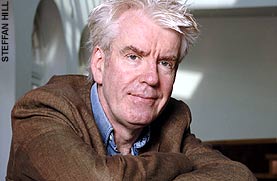 The Irish composer Gerald Barry studied in Germany with 1950s/60s icons Karlheinz Stockhausen and Mauricio Kagel, and his early works were appropriately avant-garde. The first of his works to attract wide attention were descriptively titled '_______' and Ø. As he’s mellowed, Barry has, like Golijov, incorporated folk idioms into his work. In his case, these are Irish elements, often presented as if seen through a distorting lens. On this visit, we will hear but one work by Barry, albeit a major opus. It’s his La Plus Forte, a mini-opera based on August Strindberg’s play The Stronger, translated to French from Swedish by Tage Aurell and Georges Perros. The work was written for the outstanding Canadian soprano Barbara Hannigan, who is, so far as I know, the only soloist to have performed it, and she will perform it here. It was commissioned by Radio France for the 2007 Festival Presences. The North American debut was given in Miami in 2008 by Michael Tilson Thomas’ New World Symphony.
The Irish composer Gerald Barry studied in Germany with 1950s/60s icons Karlheinz Stockhausen and Mauricio Kagel, and his early works were appropriately avant-garde. The first of his works to attract wide attention were descriptively titled '_______' and Ø. As he’s mellowed, Barry has, like Golijov, incorporated folk idioms into his work. In his case, these are Irish elements, often presented as if seen through a distorting lens. On this visit, we will hear but one work by Barry, albeit a major opus. It’s his La Plus Forte, a mini-opera based on August Strindberg’s play The Stronger, translated to French from Swedish by Tage Aurell and Georges Perros. The work was written for the outstanding Canadian soprano Barbara Hannigan, who is, so far as I know, the only soloist to have performed it, and she will perform it here. It was commissioned by Radio France for the 2007 Festival Presences. The North American debut was given in Miami in 2008 by Michael Tilson Thomas’ New World Symphony.
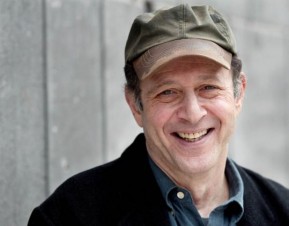 American composer Steve Reich is one of the originators of what became known as minimal music, although he has preferred the term “phase” music. Reich’s basic technique consists of the layering of rhythmic and melodic fragments in ways that create a constantly changing texture, and his music is nourished by his studies of Western composition and non-Western traditions such as African drumming, Indonesian gamelan and Hebrew psalmody.
American composer Steve Reich is one of the originators of what became known as minimal music, although he has preferred the term “phase” music. Reich’s basic technique consists of the layering of rhythmic and melodic fragments in ways that create a constantly changing texture, and his music is nourished by his studies of Western composition and non-Western traditions such as African drumming, Indonesian gamelan and Hebrew psalmody.
Reich is one of the most influential composers of our time, and has influenced concert composers as diverse as Gavin Bryars, Louis Andriessen and Arvo Pärt, as well as popular musicians and groups such as Klaus Schulze, Kraftwerk and Public Image Ltd. In fact, Reich is such an established figure that it’s hard to believe that performances of his music once sparked audience reaction so hostile that conductor Michael Tilson Thomas compared it to the scandalous premiere of Stravinsky’s Rite of Spring. Musicologist and critic Paul Griffiths has called Reich’s music “inexhaustible.” On April 29th at 8:00 in Koerner Hall, Soundstreams Canada will present the world premiere of Reich’s Mallet Quartet, written for members of Toronto ensemble Nexus and another major recent percussion work, 2x5.Reich. The composer will be in attendance.
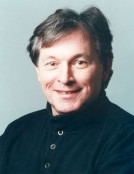 If constant change is the basis of Reich’s music, the music of Polish composer Zygmunt Krauze is its polar opposite. He’s best known for his theory of “unistic” music. Unistic music is as homogeneous as possible from beginning to end. There is no tension or release. It never changes and can be any length. Since this music would also have no beginning and no end, a listener could come and go as he or she wished. This defies the fundamental basis of most of the music we know, which has a defined beginning, middle and end, as well as signposts along the way to tell us where we are. Krauze has at times incorporated elements of folk music and music of other eras in his works, but he makes them part of his texture rather a quotation or stylistic device.
If constant change is the basis of Reich’s music, the music of Polish composer Zygmunt Krauze is its polar opposite. He’s best known for his theory of “unistic” music. Unistic music is as homogeneous as possible from beginning to end. There is no tension or release. It never changes and can be any length. Since this music would also have no beginning and no end, a listener could come and go as he or she wished. This defies the fundamental basis of most of the music we know, which has a defined beginning, middle and end, as well as signposts along the way to tell us where we are. Krauze has at times incorporated elements of folk music and music of other eras in his works, but he makes them part of his texture rather a quotation or stylistic device.
Krauze is 71, five years younger than his countryman Penderecki, and far less-known to most of the concert-going public, although his music is considered very significant and influential. Krauze is a brilliant pianist and often improvises on the music of other composers. One of his Toronto appearances will be just such a recital, as a guest of New Music Concerts. His appearances are supported by the Consulate General of the Republic of Poland in Toronto.
On January 10 at the Glenn Gould Studio, New Music Concerts will present an introduction at 7:15, followed by a concert at 8:00. The programme will include two works by Krauze: Polychromie and Piano Quintet; as well as works by Polish composers Wojtek Blazejczyk, Pawel Mykietyn, Pawel Szymanski and Agata Zubel. On January 11th at 7:00 at Gallery 345, Krauze will give a special benefit recital for New Music Concerts, including his own improvisations on the music of Chopin and Lutoslawski. On January 12th at 7:00 there will be a free public lecture by Krauze at the Faculty of Music, University of Toronto.
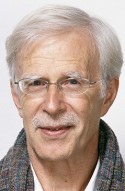 The music of English composer Jonathan Harvey is informed by both intellectual rigour and mysticism. Some of his works have been compared to those of his compatriot Sir John Tavener, although I find that a difficult comparison, since Tavener seems more ecstatic than mystic. Harvey has a most distinguished academic background, holding doctorates from both the universities of Glasgow and Cambridge. His music is performed around the world by leading new music ensembles. The first pieces of his I recall hearing were his tape piece Mortuos Plango, Vivos Voco and Bhakti for ensemble and electronics, both fascinating combinations of stillness and movement. He has written three successful operas and a plethora of instrumental and choral works. Harvey’s appearances in Toronto are the result of co-operation among the University of Toronto Faculty of Music, Soundstreams Canada and New Music Concerts.
The music of English composer Jonathan Harvey is informed by both intellectual rigour and mysticism. Some of his works have been compared to those of his compatriot Sir John Tavener, although I find that a difficult comparison, since Tavener seems more ecstatic than mystic. Harvey has a most distinguished academic background, holding doctorates from both the universities of Glasgow and Cambridge. His music is performed around the world by leading new music ensembles. The first pieces of his I recall hearing were his tape piece Mortuos Plango, Vivos Voco and Bhakti for ensemble and electronics, both fascinating combinations of stillness and movement. He has written three successful operas and a plethora of instrumental and choral works. Harvey’s appearances in Toronto are the result of co-operation among the University of Toronto Faculty of Music, Soundstreams Canada and New Music Concerts.
On March 9 at the Gardiner Museum, there will be an opportunity to meet Harvey and hear his views on music. Cocktails will be at 7:00 with a discussion at 7:30, which may well illuminate Harvey’s ideas on the relationship of music and mysticism. On March 12 at 8:00, at the Betty Oliphant Theatre, New Music Concerts will have the honour of presenting the world premiere of Harvey’s Varja for chamber ensemble, a Michael and Sonja Koerner Distinguished Visiting Composer at the University of Toronto commission. And on March 13 at 8:00, Soundstreams Canada will present a choral concert at St. Anne’s Anglican Church. It will include works by Harvey, Tavener, Palestrina and Canadian composer Gilles Tremblay, another great musical mystic.
The crop of foreign composers visiting Toronto this season isn't overwhelming in number but may be unprecedented in terms of the consequence and quality of our visitors. The circumstances that have brought this about constitute a sort of perfect musical storm. Not least is the co-operation of new music organizations, our leading orchestra and the country’s largest university. In the cases of Penderecki, Golijov and Harvey, this has meant a sort of mini-festival of their works, giving the artists not only the opportunity to have their music presented but also to reach the audience on a personal level, sharing and explaining their philosophies and personal aesthetic theories.
In terms of the impact on our musical community, the interested and informed audience will of course benefit, but I would suspect that the chief beneficiaries will be Canadian artists: composers and performers, especially the younger ones. The performers will take part in the creation of definitive performances of major international works in the presence of their composers. The composers will have the opportunity to interact with composers who would otherwise only be known to them as names in textbooks. The younger these artists are, the more formative these experiences will be.
There will be those who will say that the effort and expense of these performances would be better spent on presenting more Canadian composers and their works, and they have a point. There is always a limited amount of money and effort available for new music, and we must foster the art of our own country. However, we should also remember that any society that ignores world trends runs the risk of becoming parochial to the point of irrelevance. We may need these visitors more than they need us.
Larry Lake is a Canadian composer, performer and broadcaster. For many years, he hosted and produced Two New Hours, Canada’s national new-music programme, on CBC Radio Two.



